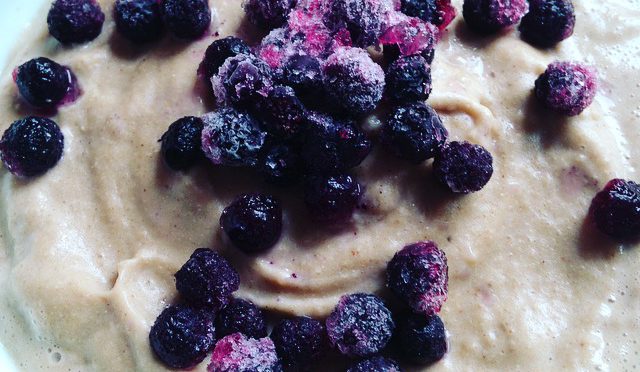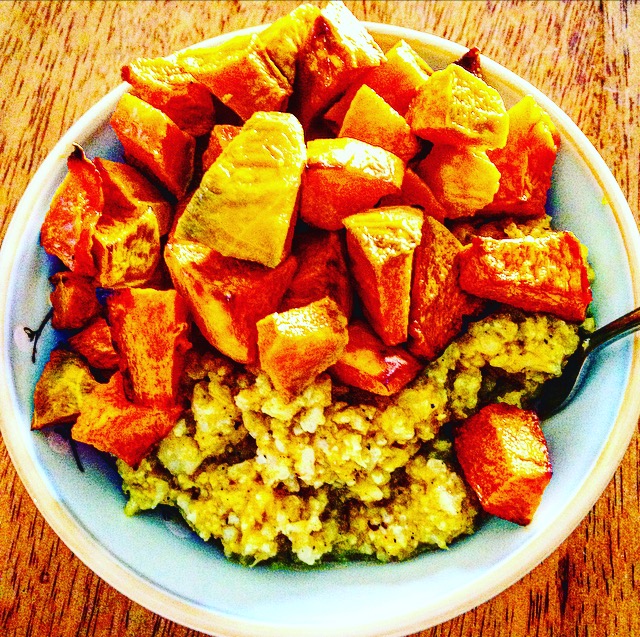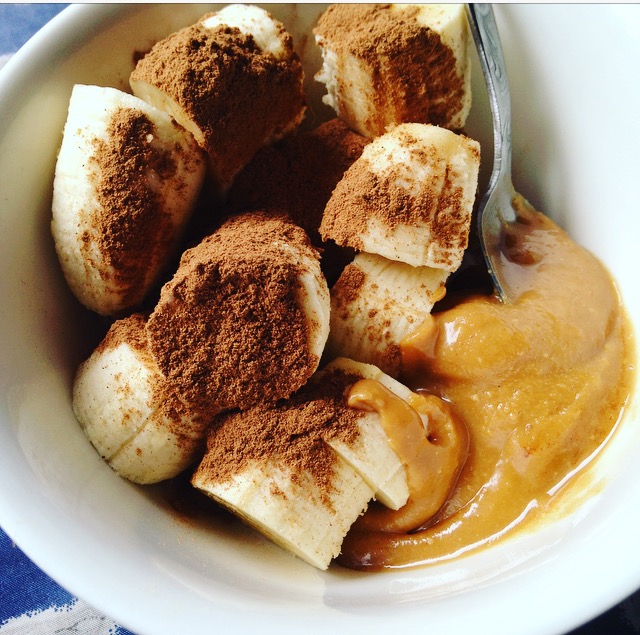Holy Moly! How random is it that I feel this intense drive to write a post about breakfast of all things? Someone out there must really be in need of some clarity, and the universe has called upon me to rectify the supposed ‘rules’ and idealisms that accompany breaking the overnight fast.
I’ll keep things brief because this matter is stupendously simple;
“You can break the fast whenever you feel called to, and when you do, your body appreciates it to be done with REAL FOOD!”
We are all so unique. We live varied routines, enjoy different foods and have individualised nutritional requirements. To say that we all ‘need’ to eat breakfast within the same ‘window’ and that it has to look like; x, y or z, is ludicrous.
It’s time to break free of idealisms and get back to common sense;
1. Listen to your body; eat when you feel ready and eat what you feel like (within the realm of real food*)
*A whole food from the ground, off a tree, or from a healthy, free-range animal (if the latter sits comfortably with your morals). The body doesn’t appreciate foods laden with chemicals or refined and smooshed together with synthetic additives. Keep it real.
2. Stay Hydrated; if you don’t feel like eating until later in the morning, that’s totally fine, just make sure that you stay hydrated by sipping on filtered water and/or your favourite herbal teas. Dehydration will effect your mood and energy much quicker than hunger.
3. Be prepared for when you are hungry; if you don’t like eating early on, ensure that you’ve got something nourishing ready to go so that by the time you do feel hungry, you aren’t reaching for something refined and nutrient-devoid
4. Know that there’s no ‘perfect’ breakfast; just as with any time of the day, you can eat whatever you feel like. Truly! From smoothies to soups, porridge to (baked) potatoes, frittata to fish, salad to stir-fry and absolutely any other whole food delights in between.
If you need some inspiration, here are some ideas to suit various morning routines …
When you feel like something light yet deeply nourishing and don’t have the time to sit and digest (you have somewhere to be) … a green smoothie (such as this one) or cold-pressed organic vegetable juice (tote some nuts or seeds along for later in case you get peckish as juice won’t keep you full for long and lacks the amino and fatty acids that your body will eventually ask for)
When you feel like something more substantial and have the time to sit and slowly enjoy … a homemade porridge (such as this one) or 2 hardboiled eggs with coconut-oil roasted pumpkin, fresh avocado and fresh herbs
When its cold and you need warming up … a bowl of homemade vegetable soup and a slice of organic sourdough or sprouted grain bread with your favourite variety of nut or seed paste (tahini, macadamia butter etc.)
When you don’t want to eat until late-morning and you’re at work, uni or school and need something nourishing but easy (minimal preparation) … A large banana and a few spoonfuls of your favourite nut butter (or seed butter if you need to be nut free in your environment) or carrot sticks dipped in avocado mashed with fresh herbs and a handful of your favourite raw or activated nuts
I hope this has set your mind at ease. You are in the drivers seat dear one. Your metabolism won’t shut down if you don’t eat by a certain time. You don’t have to eat any particular meal. You needn’t force food down your gob when when you don’t feel like it, nor is it necessary to fast until a certain time if you’re ready for food earlier. Oh, and perhaps my biggest take home; the following options that we commonly think of as breakfast foods are pro-inflammatory and not based on real food;
- Cereal and milk. Most breakfast cereals contain grains and sugar, both of which are doused in pesticides. Unless they’re based on oats (or rice, quinoa, millet, amaranth or buckwheat), nuts, seeds and fresh or dried fruit (preservative-free), cereal is a waste of stomach space. As for the milk, the most beneficial milks are plant-based and made from coconut, rice, nuts and/or seeds, filtered water, a pinch of sea salt and dates (optional, to sweeten). Dairy milk (with the exception of organic milk when tolerated by the individual) is usually sourced rather unethically and is difficult to digest for many members of the population.
- Ready-made liquid breakfast drinks. The main ingredients are corn or glucose syrups, vegetable oils, milk powder (not even milk – milk powder) and they only contain nutrients because they’ve been fortified with synthetic vitamins and minerals.
- Non-organic wheat toast with margarine. Three words; doused in chemicals. Margarine is essentially vegetable oil that’s been heated up until it turns black, bleached, died yellow and fortified with the vitamins that you’d get naturally if you opted for real organic butter, tahini or avocado.








